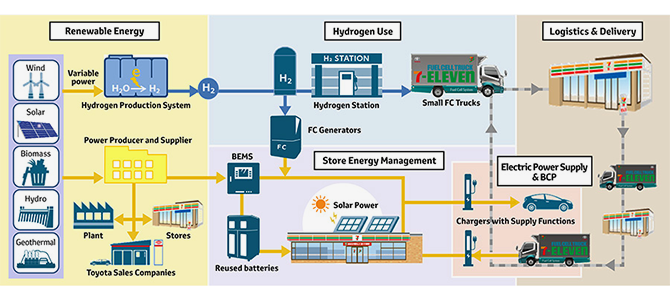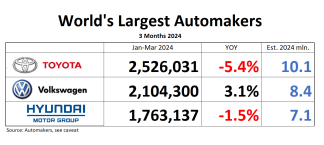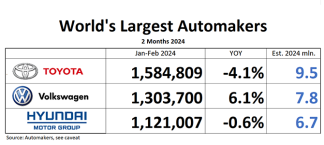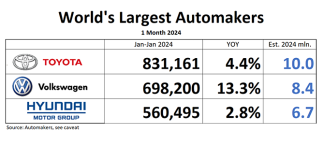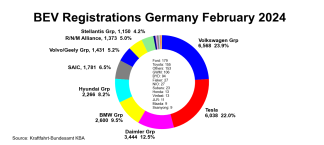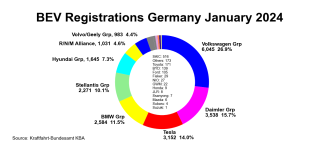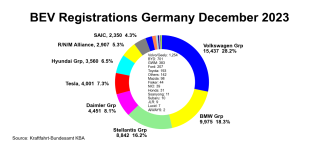It’s tough to be one of the world’s largest automakers. When one of the world’s smallest announced a battery-electric delivery truck, the world went gaga, never mind that the truck so far is no more than a figment of Elon Musk’s fertile imagination. Guess what happened when Toyota yesterday announced a fuel cell powered truck, along with a comprehensive CO2 reduction strategy, and a ready customer for the trucks? Crickets. Alright, I’ll do it.
Yesterday in Tokyo, Toyota showed a fuel-cell powered mid-sized delivery truck which will bring refrigerated groceries to 7-11 convenience stores in Japan as part of a pilot program. By 2020, 20% of 7-11’s vast truck fleet is targeted to be eco-friendly, said Seven-Eleven Japan President Kazuki Furuya. It’s part of a plan to make the sprawling chain with the orange-red-green fascia all green, with solar panels on the roof and even in the blacktop of the parking lots, with energy stored in banks of refurbished Prius batteries, and with hydrogen-powered standby generators. The whole project is one of many in Japan, part of an all-out effort to turn the island nation into a society running on hydrogen.
The Japanese-held 7-11 conglomerate was born when its former Japanese licensee bought out and overextended 7-11 U.S. in 1990. Under its Japanese owners, 7-11 grew to more than 20,000 stores all over the world. In Japan, one can hardly make a step without walking by, or into a 7-11. They have turned into multipurpose community centers, where you can pay your taxes and utility bills, make copies, send faxes, withdraw money from the ATM, pay for what you have bought over the Internet, send and receive packages, buy concert tickets, and, while you’re at it, buy groceries. 7-11 turned “convenience store” into a Japanese loan word, shortened to “conbini.” No Slurpees here, but Japanese oden, and onigiri rice balls wrapped in sea weed. Would 7-11 eventually dispense hydrogen for cars and trucks, Furuya was asked. Sure, why not, was the answer.
Grocery shelves and oden pans are replenished by a fleet of 6,000 7-11 trucks in Japan, and like at the stores themselves, there is no more 7 to 11 when it comes to hours. The stores are open around the clock, and the trucks run around the clock, doing just-in-time deliveries many times a day. There would be no time for them to recharge batteries for hours, and the refrigerated ones draw a big wattage. Hydrogen can “re-charge” the truck in minutes, and the fuel cell stacks can produce ample power to keep the ice cream from melting.
The trucks themselves are made by Toyota’s commercial vehicle operation. Satoshi Ogiso, the chief engineer of the Prius and later the Mirai fuel cell car, recently was made boss of the commercial vehicle unit, now you know why. The trucks use fuel cell stacks and tanks from the Mirai, for extra industrial strength, the tanks received an extra layer of carbon fiber armor.
P.S.: Also yesterday, Daimler announced an electric truck. That received a little more press than the convenience store hauler, but again with headlines suggesting that Daimler did it to fight the non-existing Tesla trucks. A legacy automaker simply can’t get no respect.

